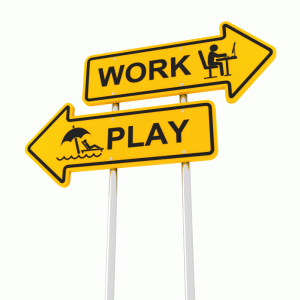Join our online community and be inspired to achieve your goals!
VIEW OUR FACEBOOK PAGE13 Mistakes to Avoid on LinkedIn

So what are the biggest mistakes we see?
- No Summary – you’ve listed your previous roles but haven’t provided a summary. This is a big mistake. The summary provides a great opportunity to capture the reader’s attention and show them why you’re good at what you do. Don’t just repeat your Resume, create a short, sharp summary of you – start from scratch and mention the important points – the ones that matter most in helping you get to where you want to go.
- Not Including Enough Detail – a bare bones profile won’t cut it in today’s job market. List all your previous roles with detail about what you did. While there is no need to list every responsibility or task under each role, a brief description of the results you achieved is important. Also, LinkedIn provides sections for much more information than a Resume – take advantage of these and add information wherever applicable. Don’t forget to optimise your profile with keywords to make it easier for people to find you.
- Not Including a Photo – a professional profile photo will significantly improve your chances of being viewed. Since this is often the first impression people get of you, make it count. Spend the money on a professional photo if need be, but just make sure it’s a good clear shot of just you, your head and shoulders, preferably taken against a white or plain background and in professional attire.
- Talking in the Third Person – it’s your profile so own it. Think of your LinkedIn profile like a cover letter – you would usually open with a first person statement like “I wish to apply for this position because I have blah blah….”. Writing your LinkedIn profile in the third person is not a good idea since the reader is less likely to connect with you.
- Being Too Formal – it’s a professional networking tool, so your profile content should be professional, but that doesn’t mean it has to be stuffy or formal. Inject some personality so the reader gets a feel for who you are as a person.
- Not Taking Advantage of the Headline – the content within the LinkedIn headline section defaults to your current or most recent role. BUT you can customise this to anything you like. We always recommend a customised headline – make it descriptive, use up all the characters and tell people what you’re capable of. Remember this headline (combined with your photo) provides the very first impression people have of you.
- Not Personalising Your Connection Messages – never just send out the standard ‘I’d like to add you……..’ message. Take the time to personalise your message to remind the person how you know them or let them know why you want to connect.
- Not Connecting With People – you may be amazed at just how many people you know on LinkedIn. Seek them out and connect with them and try not to wait until you need something. You should constantly build your network – adding and accepting connections from people you know professionally or personally.
- Not Using a Vanity URL – the automated personal URL created when you set up your profile usually includes a combination of your name with lots of letters and numbers at the end. Take advantage of the vanity URL and change it to the best version of your first and last name as possible.
- Using it as a Resume – your LinkedIn profile should be more personal, more intimate and less formal than your Resume. It also contains additional information that your Resume may not. It’s a great resource to apply for jobs posted through LinkedIn but should never replace your Resume. Most companies still want to review your Resume which is why your LinkedIn profile should provide slightly different content.
- Failing to Create a Brand – not thinking about who your target market is will diminish the value you achieve. Think about your ultimate goals for your LinkedIn profile, who you’re trying to reach or influence and what they are most interested in. How do you want to be perceived? Are you seeking employment or do you want to build connections to help your business grow?
- Not Using Keywords – the use of keywords right throughout your profile is essential if you want to be found by people who don’t already know your name. Think about the words and phrases that relate to you and your career and make sure you populate your profile with them – put them in your headline, summary, individual role summaries, skills and endorsements, projects – everywhere you can. Make sure your profile is optimised for people conducting searches and make those phrases count!
- Not Asking for Recommendations – recommendations are the modern day version of a written reference. Most of us have at least a few people in our professional world who will say good things about our work. However, you need to ask those people for a recommendation. Approach your contact with a goal in mind – so tell them what you’re after in terms of the skills or expertise you’d like them to highlight – be specific and most people will oblige. In my experience people don’t write recommendations without being asked, but if you ask the right person, they’re usually more than happy to do it.
LinkedIn is a valuable professional networking tool that has a raft of features and benefits that you need to be taking advantage of in order to achieve the best results.
Do you have trouble networking? Are you lacking a good quality LinkedIn profile to help you find and connect with like-minded industry experts or maximise your job search? If you would like a LinkedIn Profile Writer to help you create a professional, keyword optimised LinkedIn profile that highlights your strengths and achievements and sets you apart from your competitors, please see our LinkedIn Profile Writing service.








